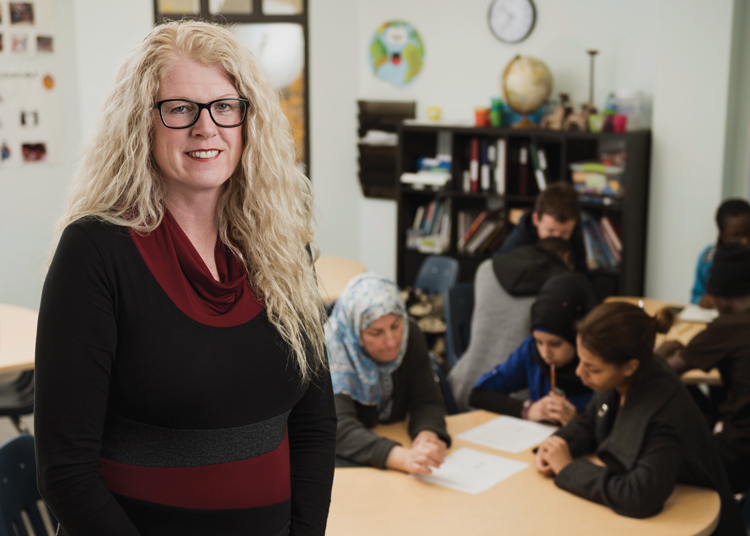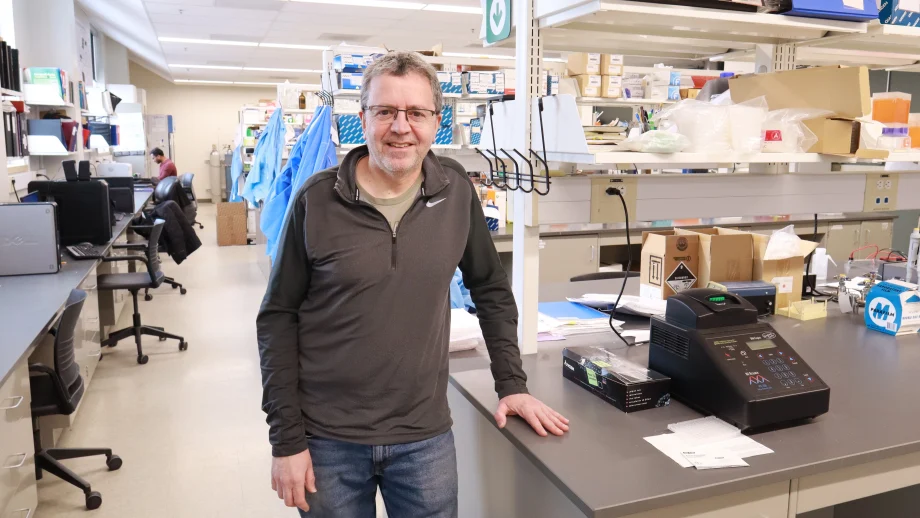Originally published in the Fall 2016 UWinnipeg Magazine.
The plight of refugees fleeing war has been increasingly in the public eye this past year as Canada accepts and integrates 30,000 people from Syria—more than half under the age of 17. This integration poses many new challenges and opportunities for teachers across the country, as children arrive struggling with language, interrupted schooling, and the traumas of war and violence.
UWinnipeg’s Dr. Jan Stewart is leading a Canadian study, now in its third year, aimed at helping refugee youth navigate school. “There is a strong demand for research that can be used in classrooms to help educators do what’s best for refugee children,” says Stewart, who has had numerous requests from across North America to conduct workshops. “Teachers need tools and that is our focus now. We are developing 40 tangible lessons that educators can use, and will spend this fall testing those in focus groups so they will be peer-reviewed.”
Stewart, a professor in the Faculty of Education, has conducted more than 150 interviews with her team in Winnipeg and rural Manitoba schools, at settlement agencies, and in the community. Researchers in Calgary and St. John’s are conducting similar interviews to build a database of best practices that will inform the classroom lessons.
Beginning in November 2016, Stewart will participate in Harvard University’s Global Mental Health: Trauma and Recovery Certificate Program. The intense training offers a cultural and scientific learning experience addressing the needs of traumatized persons and communities worldwide.
In April 2017, Stewart is organizing a national consultation with policy makers (to be held at UWinnipeg) to share a summary of her research results. Her team is also developing three Summer Institutes for 2017 geared towards teachers, justice officials, agency workers, health professionals, and anyone who deals with refugees directly. The Institutes will offer practical help and teaching strategies in the areas of language and dealing with mental health issues and trauma.
Diane Poulin





